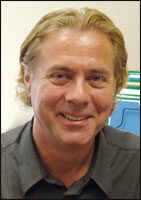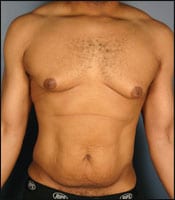 |
| Jeffrey Frentzen |
In Stephen King’s 1979 novel The Dead Zone, the main character is injured in an accident and is in a coma for several years. When he awakes, he can discern horrifying secrets but cannot clearly identify all the details of his visions. This is how I feel sometimes when I take a look at the marketing of antiaging therapies and products and the effect it might have on your patients.
Recent, impressive scientific research into genetic engineering, stem cells, and other advanced technologies bring a promise of possible treatments that can slow the rate of aging. However, a closer look at some published material suggests only a parody of scientific research. So, a portion of the antiaging fad is groundless or questionable at best, whereas other research efforts have yielded quite valuable results. How does one keep it all straight?
In reality, science has only scratched the thinnest top layer of what makes us age, the chemistry involved, and how one might alter that chemistry at the cellular level in order to prolong a healthy life.
Many firms have applied the term “antiaging” to skin care products and vitamin supplements. The term is a fast-moving target—there are no rules out there about what constitutes an effective or reliable antiaging formula or product. The task of sorting out the snake oil from the good products is left to no one except the consumer. And the consumer responds to talk about antiaging therapies and products with an emotional—not scientific—logic.
When manufacturers are not held to a particular standard, anything goes. It behooves the plastic surgeon to do some homework on the subject of antiaging and to help the prospective patient eliminate strictly emotional logic when assessing antiaging products and services.
Patients will come to you with exaggerated ideas of what can be accomplished in terms of rejuvenation. Antiaging product marketers range from the slimiest Internet-based hucksters to the highest-profile cosmetic companies.
In addition, when opinion makers such as Oprah Winfrey tout the use of antiaging therapies and products, people think the products really work as advertised.
What do you tell the patient who is convinced, for instance, that the acai berry or the latest experimental hormone therapy will work just as well as a facelift or a tummy tuck? Don’t just say no way, although in essence that is the correct answer. Arm yourself with facts about the latest developments in antiaging research and development.
Web links to follow include the Quackwatch Position Statement on Human Aging (www.quackwatch.org/01QuackeryRelatedTopics/antiagingpp.html), the ultimate science-oriented rebuttal to the claims of the snake oil salespeople.
To stay on top of developments in antiaging research, check out the Longevity Science site (longevity-science.blogspot.com), which provides a fairly evenhanded commentary aimed at promoting an understanding of the mechanisms of aging and longevity.
Finally, one of the most insightful articles out there, “How to Do the Ultimate Aging Study” (www.the-amazing.com/how-to-do-the-ultimate-aging-study), is in response to superficial antiaging coverage published recently by Time magazine and US News & World Report.
The author makes a straightforward observation that tons of money and resources have been thrown at cracking the aging “nut” for more than 2 decades, and the scientific community has very little to show for it.
REALITY CHECK
Back to your patient. She’s all pumped up over the latest claims about antiaging products and wants to know, are they for real? It is tempting to nod a little bit because you are as human as she is, and at times we all operate with that emotional logic that wants to believe.
However, the fact is that proponents of antiaging medicine claim that the fountain of youth has already been discovered. This seriously damages the credibility of serious scientific research on aging.
No panacea exists, you must tell her, and the products on the market may have some benefits and may even work on some level, even though a lot of them do little more than advance the placebo effect in combating the ravages of age, environment, as well as the possibly poor personal lifestyle choices (such as smoking and overeating) on humans.
Tell her perhaps slowing the rate of aging would have enormous health benefits for the population by far exceeding what one might expect after the complete elimination of heart disease, cancer, and stroke.
But we are not there yet.




